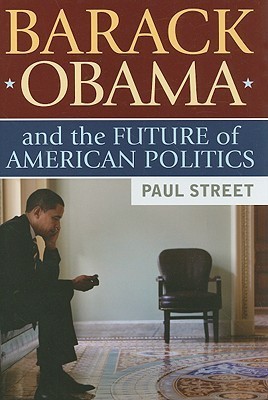What do you think?
Rate this book


Many Americans believe Barack Obama represents a hopeful future for America. But does he also reflect the American politics of the past? This book offers the broadest and best-informed understanding on the meaning of the “Obama phenomenon” to date.
Paul Street was on the ground throughout the Iowa campaign, and his stories of the rising Obama phenomenon are poignant. Yet the author’s background in American political history allows him to explore the deeper meanings of Obama’s remarkable political career.
He looks at Obama in relation to contemporary issues of class, race, war, and empire. He considers Obama in the context of our nation’s political history, with comparisons to FDR, JFK, Bill Clinton, and other leaders. Street finds that the Obama persona, crafted by campaign consultants and filtered through dominant media trends, masks the “change” candidate’s adherence to long-prevailing power structures and party doctrines. He shows how American political culture has produced misperceptions by the electorate of Obama’s positions and values. Obama is no magical exception to the narrow-spectrum electoral system and ideological culture that have done so much to define and limit the American political tradition.
Yet the author suggests key ways in which Obama potentially advances democratic transformation. Street makes recommendations on how citizens can productively respond to and act upon Obama’s influence and the broader historical and social forces that have produced his celebrity and relevance. He also lays out a real agenda for change for the new presidential administration, one that addresses the recent failures of democratic politics.
This study differs from previous books on Obama in at least three ways: (1) Street’s determination to offer a balanced but critical assessment of the “Obama phenomenon” from a perspective shaped by years of engagement with Left theory and activism; (2) Street’s effort to understand the phenomenon in a deeply researched historical, societal, and institutional context, consistently relating Obama’s career and candidacy to the ongoing historical development and dilemmas of U.S. political culture; (3) Street’s ability to deepen his account by drawing on his considerable direct experience with the phenomenon over years as a civil rights researcher and advocate on the south side of Chicago (2000-2005) and as a campaign activist in Iowa during the long and critical Iowa primary (caucus) season of 2007-2008.
Read the Huffington Post interview with Paul Street: Huffington Post interview
Read the ZNet interview with Paul Street: ZNet Interview
Read the Firedoglake Book Salon feature of this book: Firedoglake Review
320 pages, Hardcover
First published October 30, 2008